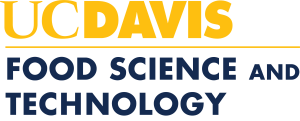A. Specific Learning Outcomes. Students will be able to:
- Identify the major sources of toxins in foods
- Identify and discuss the role of the major governmental agencies involved in food regulation/safety/monitoring food in the US.
- Explain the concept of dose-response, generate and interpret dose-response curves
- Describe and distinguish toxicokinetics and toxicodynamics
- Describe the principles of toxicant metabolism and distinguish the enzymes and co-substrates involved in phase I and phase II biotransformation reactions
- Define mutagenesis, teratogenesis, and carcinogenesis and explain the basic mechanisms of action for mutagenesis, teratogenesis, and carcinogenesis
- Explain the basis for organ system toxicity; describe and contrast general mechanism for: neurotoxicity, pulmonary toxicity, dermal toxicity, hemotoxicity, hepatotoxicity and nephrotoxicity
- Describe and distinguish examples of toxins in foods of plant origin and discuss mechanisms and manifestations of toxicity relating to their exposure
- Describe and distinguish examples of marine toxins and discuss mechanisms and manifestations of toxicity relating to their exposure
- Describe and distinguish examples of toxicants resulting from food processing and discuss mechanisms and manifestations of toxicity relating to their exposure
- Describe and distinguish examples of food additives, dyes, and processing aides and explain contemporary concerns regarding their use.
- Define food-borne infections and bacterial toxins and describe mechanisms and manifestations of toxicity relating to examples of food-borne infections or bacterial toxins.
- Describe and distinguish mechanisms and manifestations of toxicity relating the major classes of pesticides
How this course addresses IFT Core Competencies:
Major elective offered in the spring quarter of a student’s junior or senior year. FST 128 is a 3 unit lecture course. FST 128 builds on principles taught in FST100A, FST101A and FST103 to meet the competencies in Food Chemistry, Food Safety and Microbiology, Food Processing sections, while also addressing many of the Applied Food Science Skills and Success Skills (e.g. critical thinking/problem solving skills) required by IFT.
B. Tools used to assess program outcomes.
Bloom’s levels I-VI.
This course develops advanced-level understanding of toxins in foods and requires students to integrate knowledge accumulated through course instruction. Students participate in the National Institute’s Tox-Tutor to help develop and reinforced higher-level understanding. Assessment includes classroom participation, two mid-term exams and a final exam to test knowledge. The final exam is cumulative and includes questions that require integration of knowledge of numerous concepts presented throughout the course (e.g. identifying the toxin source, metabolism, mechanism of action, and risk/exposure assessment).
C. Brief summary of assessment results to date.
Food Toxicology (FST128) is also offered through the Department of Environmental Toxicology (EXT128). Alyson Mitchell has instructed this course every-other-year for 14 years. The course is developed to provide advanced-level knowledge of food toxicology with an emphasis on contemporary issues.
- Each year students are asked to complete a course evaluation form for the course. The numerical scores using a scale of 1 (strongly disagree) to 5 (strongly agree) for specific questions as well as verbal comments are compiled. The course and the instructor are evaluated separately. The mean score for the course and instructor evaluation are 4.5 and 4.4 respectively. Students are asked to submit their own feedback on the course with suggestions for course and instructor improvement. These students’ assessments are studied carefully and new strategies are developed to deliver the course content in a more effective manner and to continue to improve and focus learning outcomes. Based on this feedback, lecture outlines are now made available on-line on the course web site. In addition, additional office hours are now offered as well as more contact time through email.
- Future plans: Course enrollment has continued to grow. We anticipate this trend to continue. As student demand increases this course will be eligible for TA support. This will allow the inclusion of an integrative “food deconstruction” writing assignment that integrates principles of food toxicology with risk assessment.
